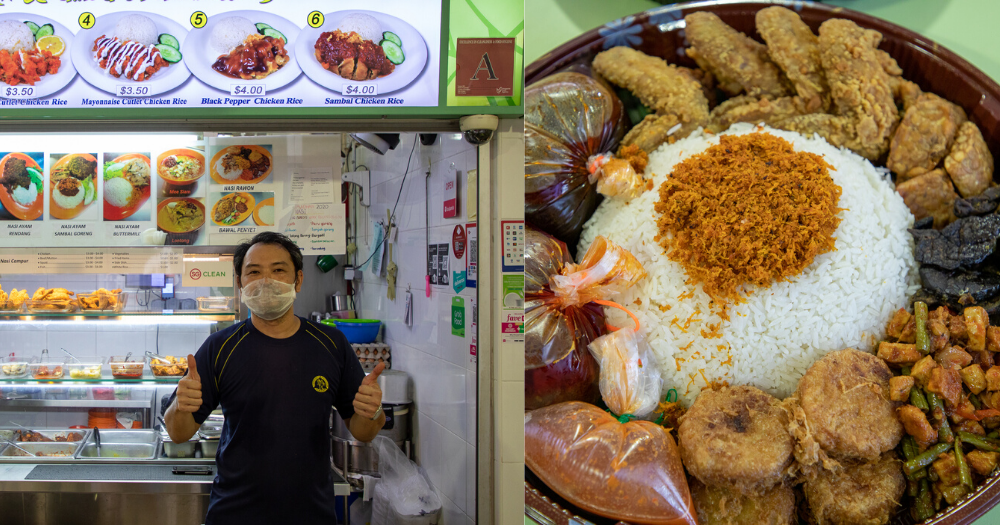At 40, most Singaporeans would have settled down in a specific career path.
But for one Hasnizam Yassin, it was an opportune time to switch careers.
For close to 10 years, he had been working as a freelancer in the shipping industry.
In March 2019, however, he decided to open HAS Kitchen at Ci Yuan Hawker Centre to sell halal chicken rice, nasi campur (mixed rice) and other Malay traditional dishes like handmade epok-epok and roti boyan (Boyanese pastry).
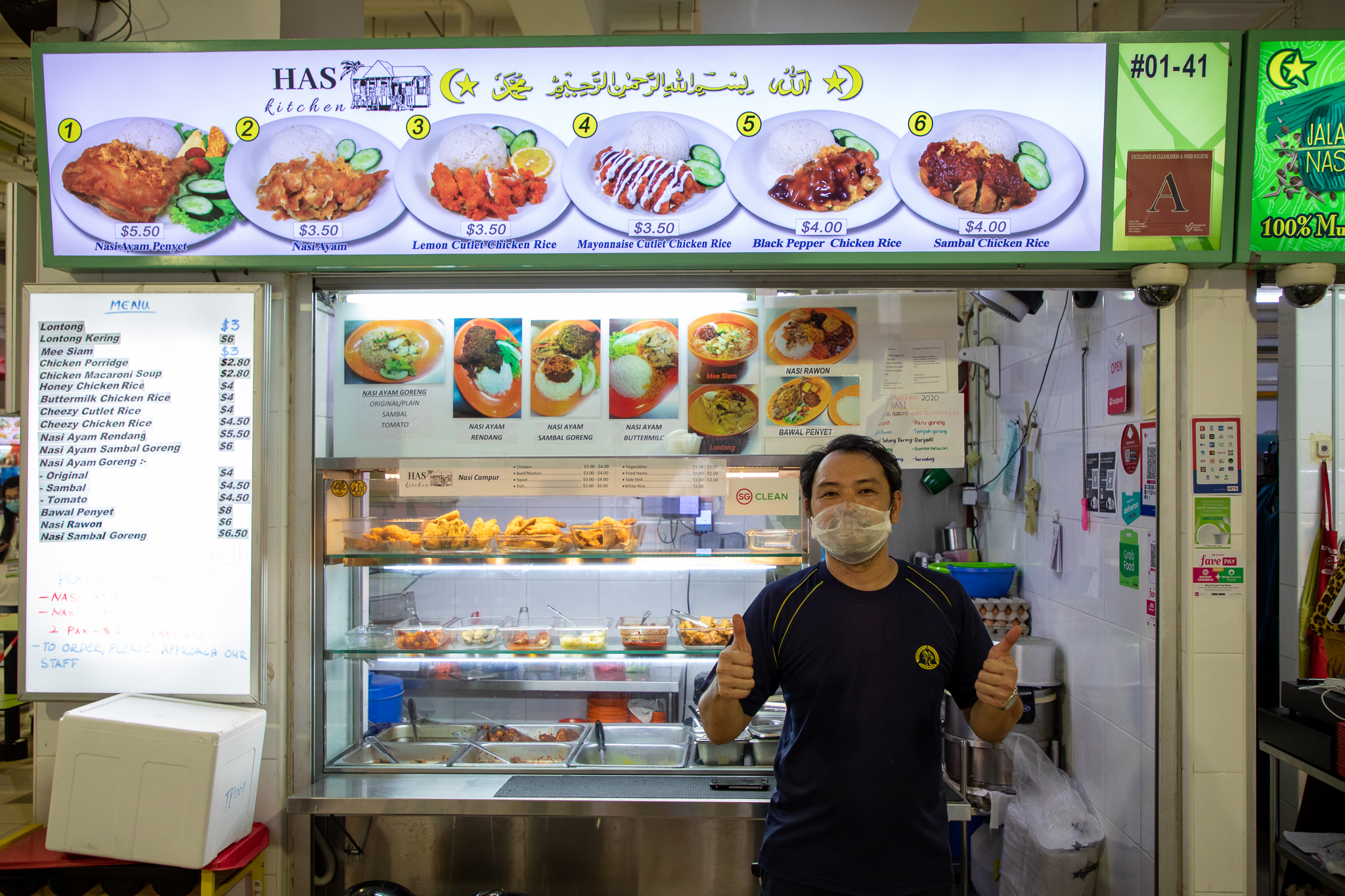 Photo courtesy of the National Environment Agency.
Photo courtesy of the National Environment Agency.
Transitioning to become a hawker wasn't easy for the 41-year-old, especially when he loved his previous job.
"I enjoy challenges and don't like to sit in one place. When I was in the shipping industry, I would spend a few months in Korea or Russia for work. But when I became a hawker, I have to stay at my stall for almost the whole day."
Keeping it in the family
But that's not to say he isn't sufficiently challenged at his current job.
Despite coming from a family of wedding caterers, Hasnizam had zero experience in the kitchen when he first started.
Yet, he considers himself lucky to have the guidance and support of his family, including his wife, mother and brother-in-law who often help out at his stall.
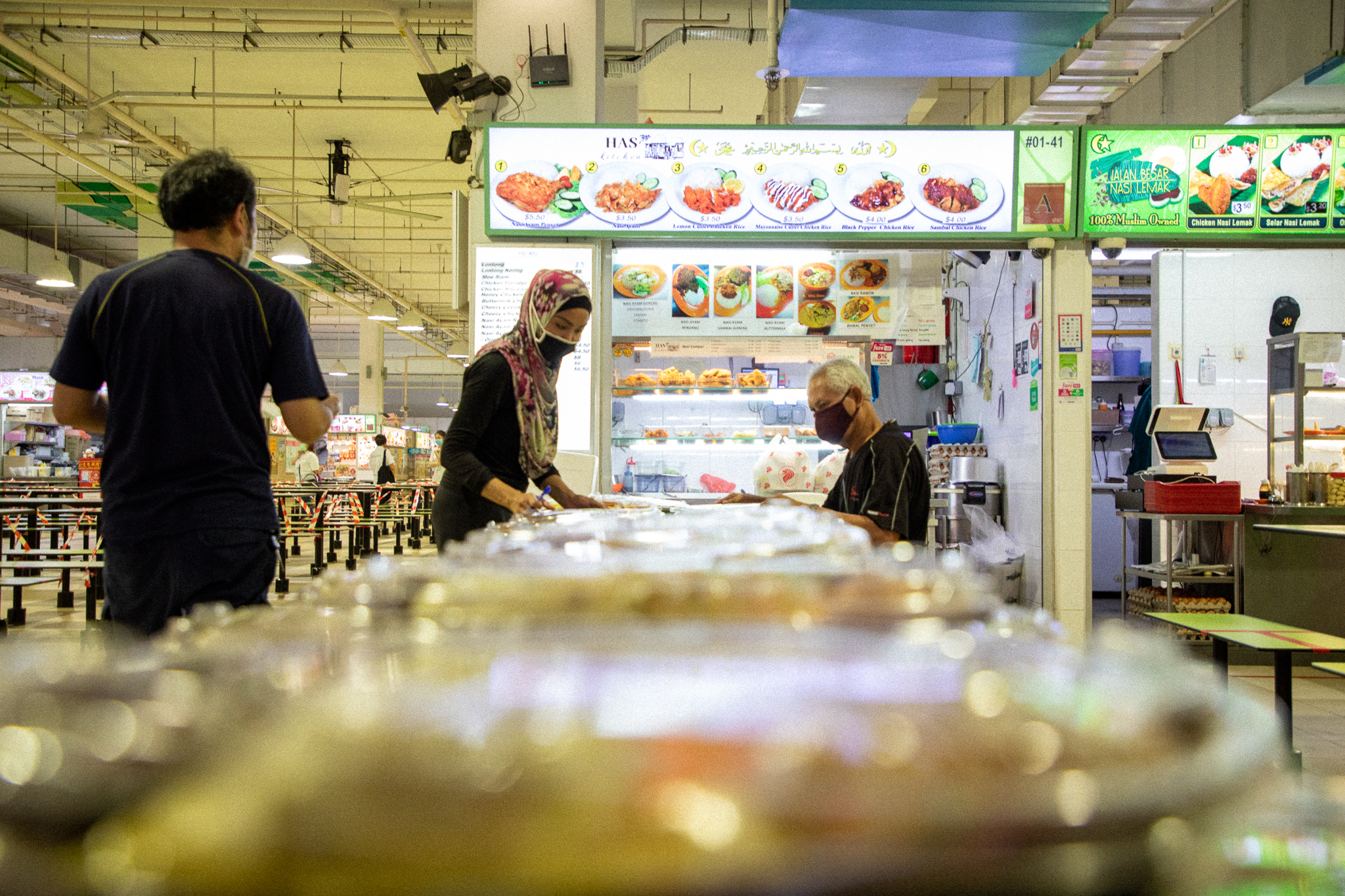 Photo courtesy of the National Environment Agency.
Photo courtesy of the National Environment Agency.
Under the patient guidance of his mother, it took him seven months to perfect his chicken rice recipe.
After that, he picked up a few more recipes before adding nasi campur to his menu in Dec. 2019.
Since then, he finds it rewarding whenever his customers give him constructive feedback.
"Cooking is the most challenging part for me as a hawker. What inspires me the most is when customers give me feedback to improve my recipes. Whenever I get a positive Facebook feedback, it encourages me to strive for more," he said.
And it seems like his efforts have paid off.
As there were few halal options at the hawker centre back then, the business was especially brisk during the first two months.
He shared that customers especially loved his mother's "giant epok-epok" which she would only make when she helps out at the stall.
On a regular day, he would be able to sell up to 70 servings of chicken rice and 30 servings of nasi campur.
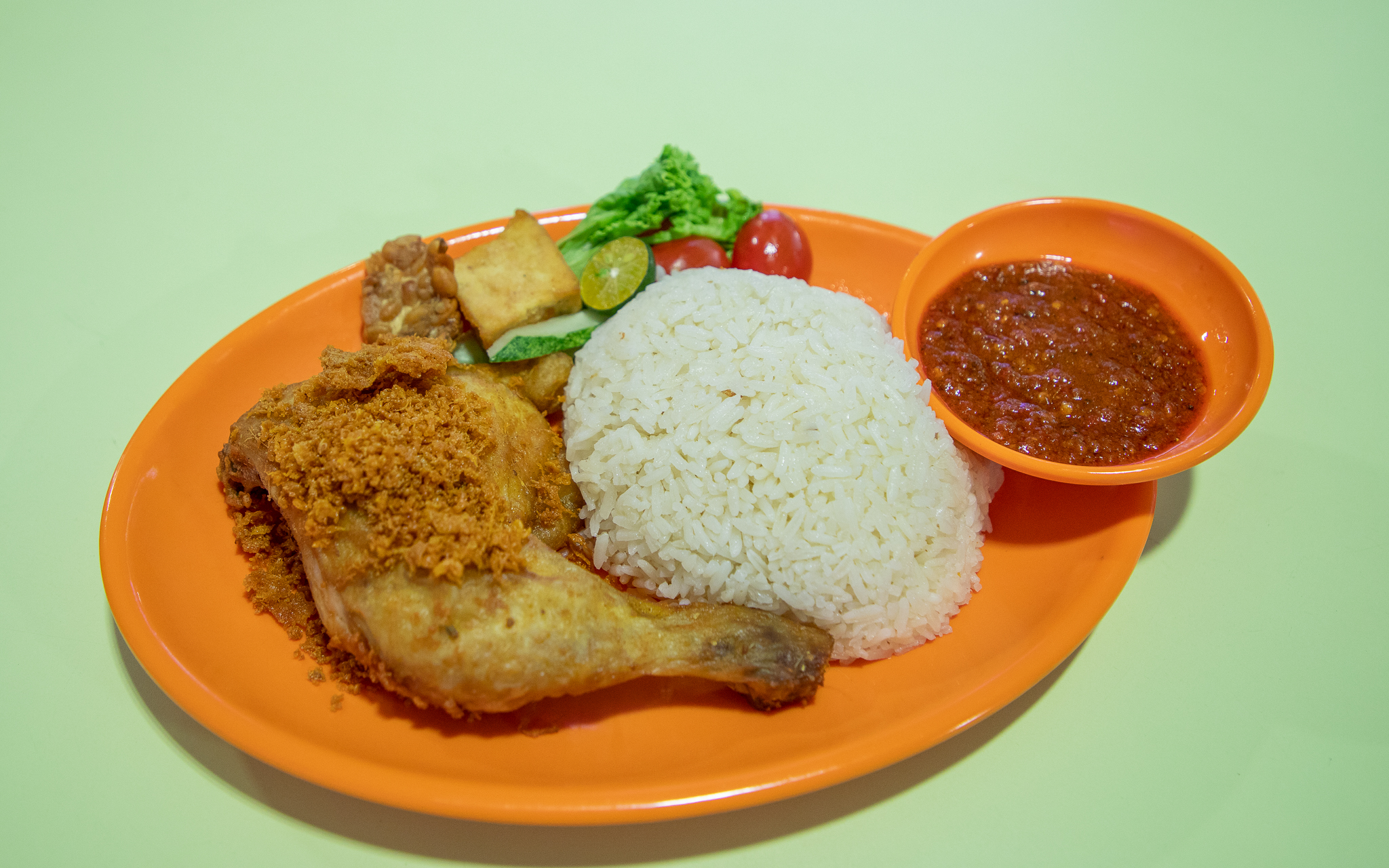 Photo courtesy of the National Environment Agency.
Photo courtesy of the National Environment Agency.
The first of many challenges
Things, however, haven't always been smooth sailing.
With more halal options popping up in the vicinity, sales began to decline.
And it kept declining to the point that he felt like giving up.
"I told my mother I felt like giving up but she told me that I've already spent thousands of dollars trying to open this stall. She advised me to try and hold on."
His family and his four sons aged between 13 and 6 years old remain his motivation to continue with his business.
"Because of the motivation they gave me, I have to fight through. I also have to think of my children," he said.
Sales dropped by 55 per cent
But this was just a small hurdle compared to what he faced in recent months: The Covid-19 outbreak.
During the circuit breaker period, customers weren't allowed to dine at the hawker centre and a lot of people were working from home.
The restriction continued into Phase 1 post-circuit breaker.
He was only able to sell up to 35 plates of chicken rice and 12 plates of nasi campur a day.
As a result, he faced a loss of about 55 per cent at the start of the circuit breaker.
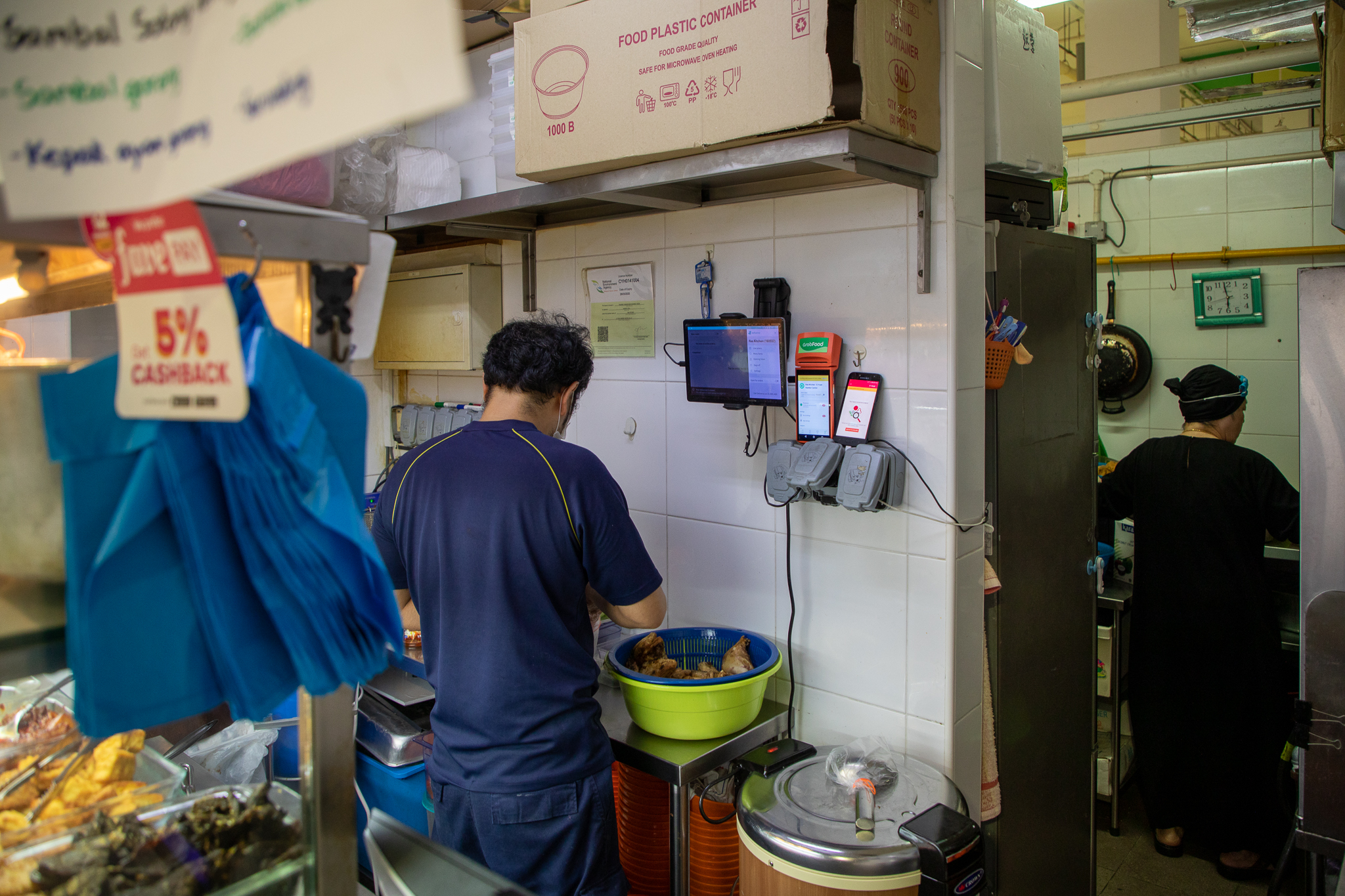 Photo courtesy of the National Environment Agency.
Photo courtesy of the National Environment Agency.
To prevent food wastage, Hasnizam also began to cook smaller portions a day.
"The usual amount of food I cooked pre-circuit breaker would end up in the dustbin. I feel sad wasting the food because it feels like I'm throwing the blessings away."
While he did try to reach out to the relevant organisations to donate the leftover dishes, he was told that they couldn't accept it as they have already received enough food donations for the day from other food establishments.
It only got worse during the fasting month, as not a lot of people would go out to lunch since most of his customers were fasting.
"I started to stress out. I didn't know what I needed to do at that time. I could only pay part of my outstanding bills during that period. I asked my wife, how? What should I do?"
Saving grace
With the assistance from Fei Siong Social Enterprise, he decided to come up with special nasi ambeng and nasi rawon platters, especially for the fasting month.
Within a matter of a few days, he learnt how to make certain dishes for the platter including sambal balado, sambal paru (cow lungs cooked in sambal) and sambal telur (sambal eggs).
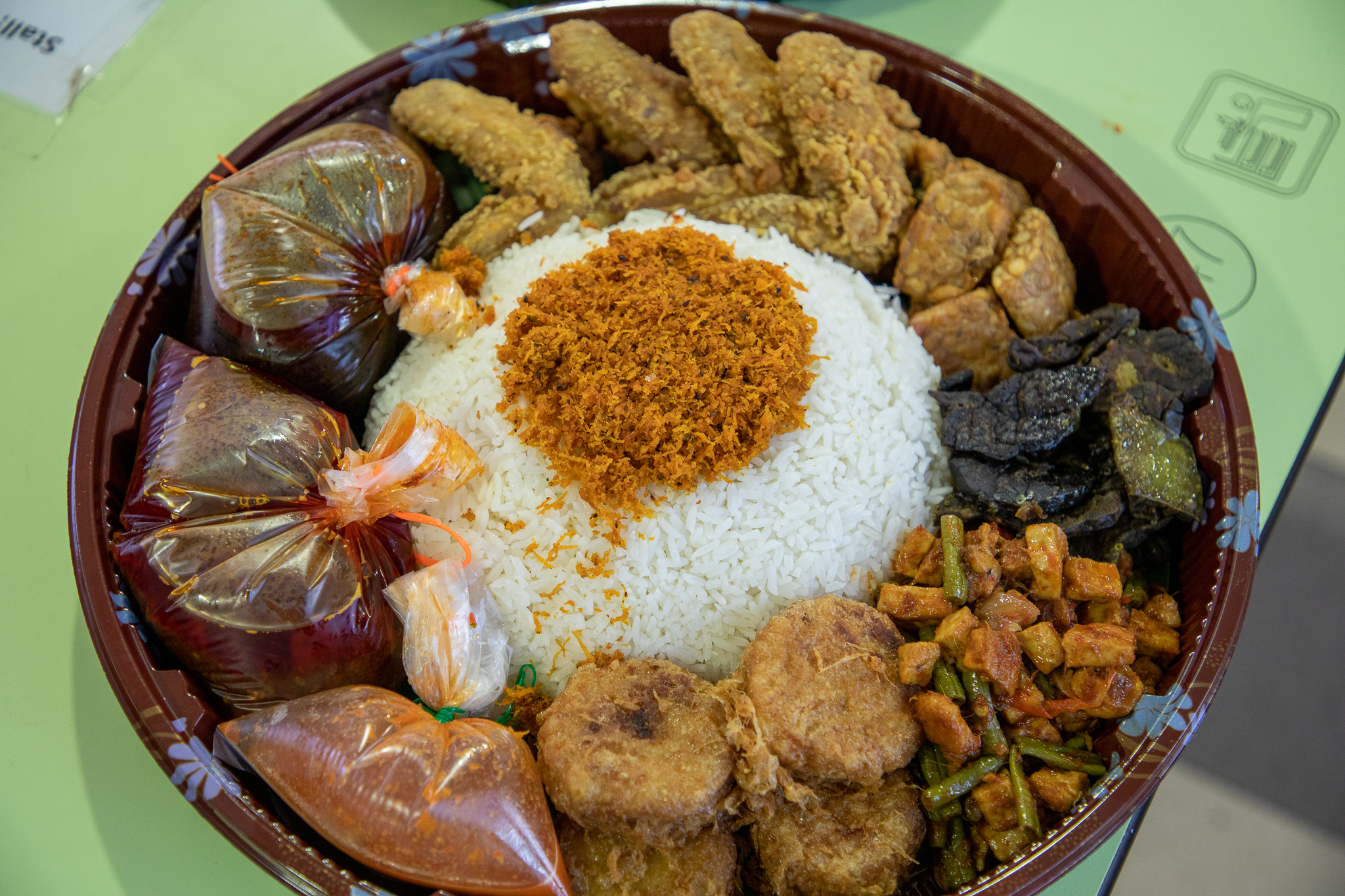 Photo courtesy of the National Environment Agency.
Photo courtesy of the National Environment Agency.
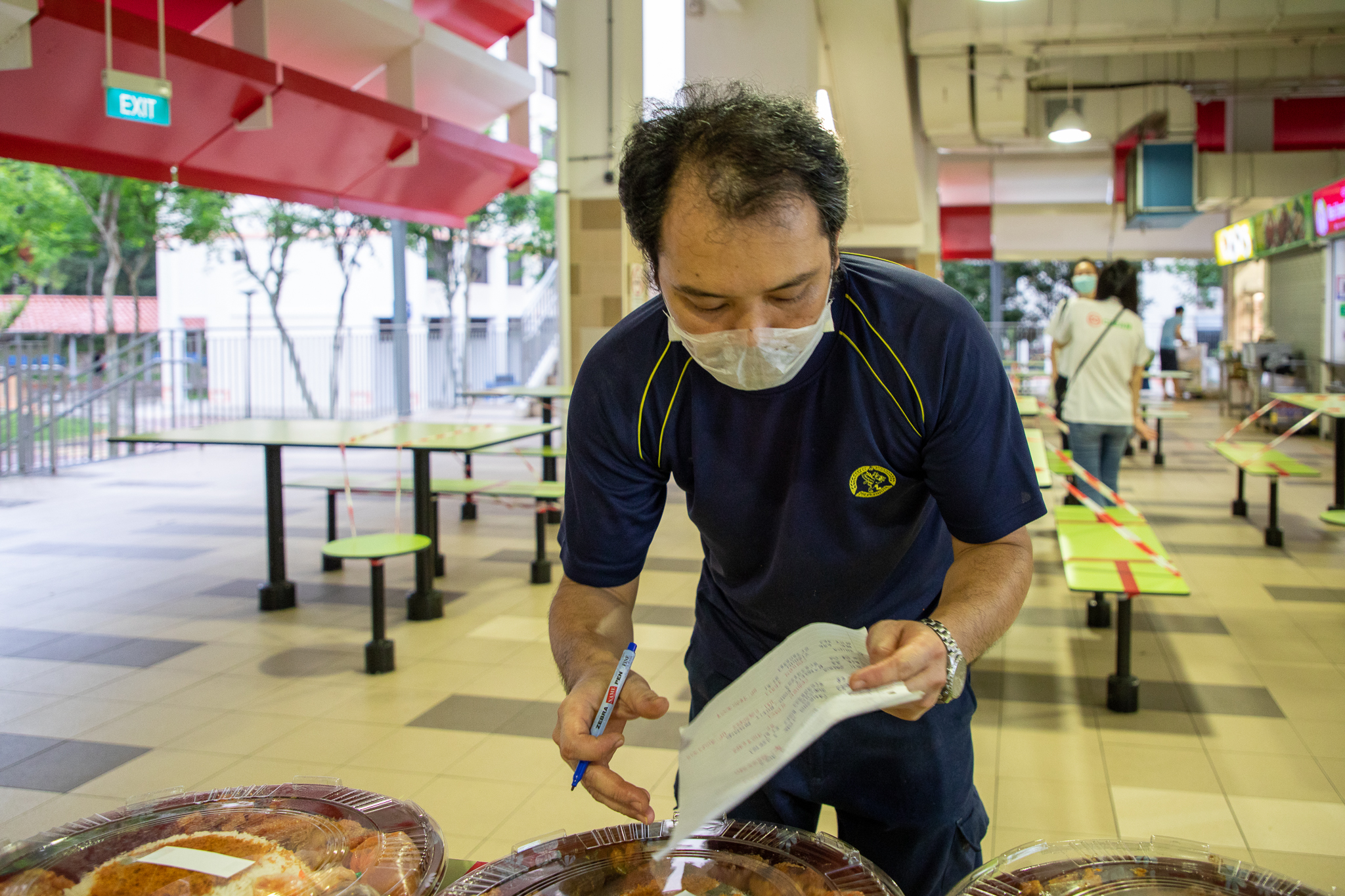 Photo courtesy of the National Environment Agency.
Photo courtesy of the National Environment Agency.
The platters were so well-received, he managed to sell an average of 20 platters a day.
Now, the platters account for about 80 per cent of the sales for the month.
Apart from cooking less and the platter sets, Hasnizam also received rental waiver and subsidy for table cleaning and centralised dishwashing, which helped to lessen his load.
He also received a S$500 funding from the National Environment Agency (NEA) for using food delivery services.
"After I received all these help, I managed to settle my outstanding bills. It really helped me at that time."
Remains optimistic
It was only June 3, the second day of post-circuit breaker, when we last talked to Hasnizam.
However, he hasn't seen much of a change.
"Right now, it's close to 4pm and my first batch of food is about to finish. Before the circuit breaker period, I would be cooking another batch of food around noon. I hope that time will come back soon."
Regardless, he remains optimistic and looks forward to the future of HAS Kitchen.
"I have plans to expand this business. I hope one day I can hire one to two staff to help out at the stall. When that happens, maybe I can continue working at the shipyard and help out at my stall once I'm done. Have the best of both worlds, you know?"
Top image courtesy of the National Environment Agency.
If you like what you read, follow us on Facebook, Instagram, Twitter and Telegram to get the latest updates.
